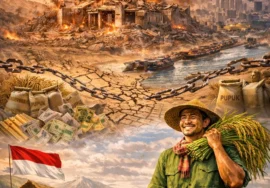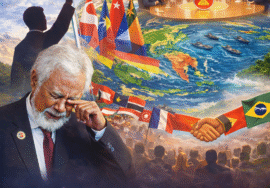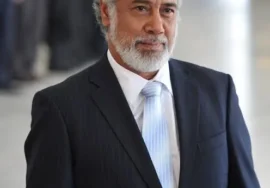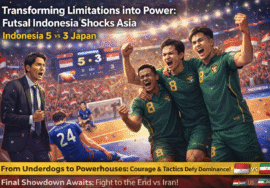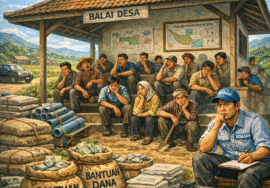The Mandiri Movement in a New Democratic Era: Welcoming the Constitutional Court’s Decision on National and Local Elections
⚖️ Constitutional Court Decision: A Turning Point for Local Democracy
Through its ruling in 2024, the Constitutional Court (MK) introduced a fundamental shift in Indonesia’s democratic system. Starting in 2029, national and local elections will no longer be held simultaneously. As a result, presidential and national legislative (DPR) elections will be conducted separately from regional elections for governors, regents, mayors, and local legislative councils (DPRD) at the provincial and district/city levels. This separation opens space for more focused and independent local political dynamics—free from the shadow of national electoral politics.
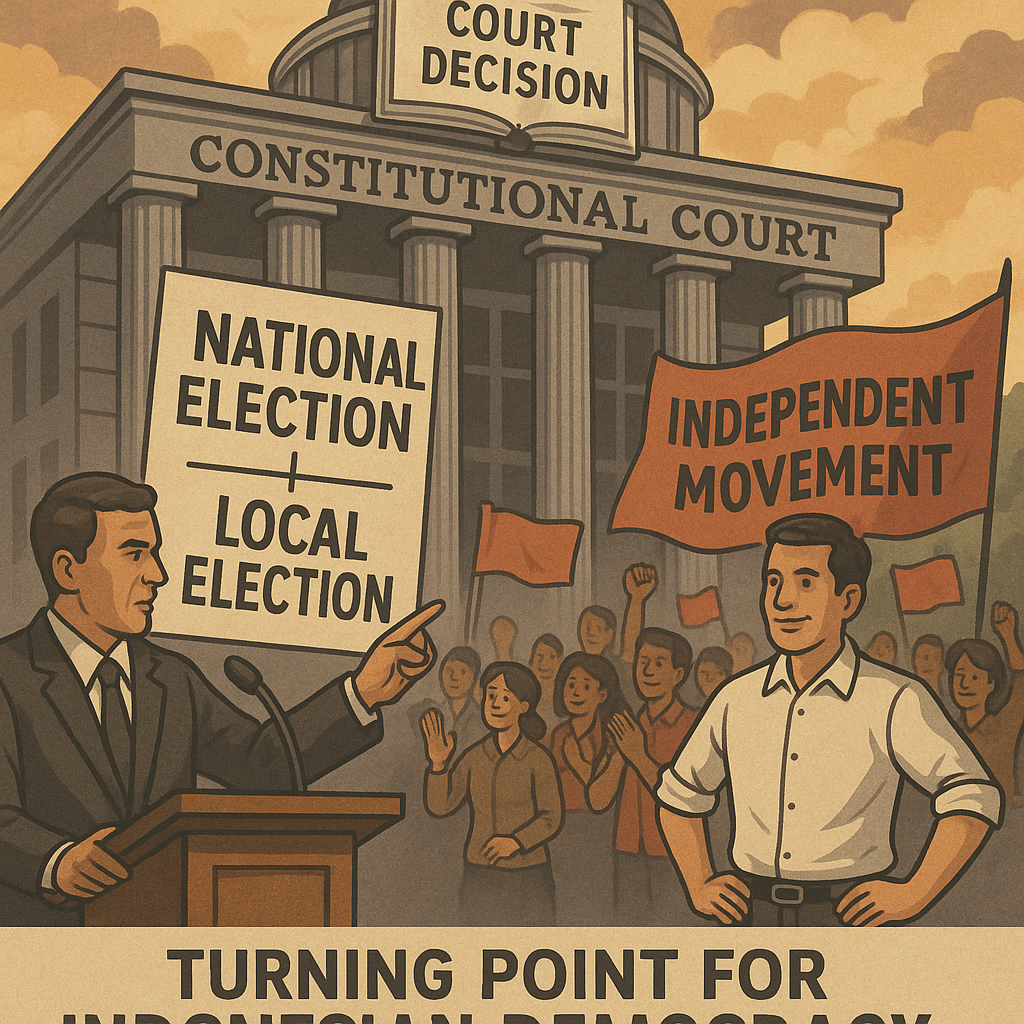
The Court’s decision responds to growing public concern over the declining quality of local democracy, often overshadowed by the loud spectacle of national campaigns. In simultaneous elections, local voices and narratives frequently fade into the background. Regional candidates have tended to appear only as “supporting acts” on the national stage. Now, with separate elections, local areas are offered their own spotlight.
🌱 Mandiri Movement: The Rise of Politics from Below
Amid this system transition, the spirit of the Mandiri Movement regains its relevance. Citizens in the regions are no longer passive observers of national politics—they are active players in shaping authentic local agendas. Mandiri is not just a slogan; it reflects a grassroots democracy that is independent, participatory, and context-driven.
Political parties that treat local structures as the core of their strength—not mere extensions of the center—will gain greater room to grow. Emerging leaders who rise from communities rather than central bureaucracy will be more visible, accountable, and connected to their constituents.
🏛️ Legal Challenges: Regulatory Reform Is Urgent
But this opportunity comes with risks. Current regulations still reflect a unified election framework. Without swift and measured revisions to the Election Law and Regional Election Law, Indonesia could face schedule chaos, term conflicts, and power vacuums in various regions.
The government and DPR must urgently establish a legal roadmap that is fair, constitutional, and participatory. Revision processes must be open to input from political parties, scholars, civil society organizations, and election organizers.
🧭 Political Test: From Centralism to Substance
For political parties, this is a moment of reckoning—are they ready to move beyond old electoral models that rely on presidential coattails and commit to substantive democracy? Parties that have depended on central figures must now adapt to local realities, where relevance and integrity matter most.
This is where the Gema Bangsa Party takes a distinct stance. Born from a spirit of anti-transactionalism and decentralization, Gema Bangsa has entrusted candidate selection for regional heads to local party boards. Popularity alone is not enough—we prioritize grassroots leadership, integrity, and public service.
We see this election separation not as a barrier, but as a breakthrough. We embrace the Constitutional Court’s decision as the beginning of a new era: where politics becomes service, not domination.
✊ Back to the Roots of Democracy
The Constitutional Court’s ruling is not just a technical correction—it’s a powerful signal that Indonesia’s democracy is under reconstruction. The Mandiri Movement is no longer an ideal—it’s a necessity. Local elections will become meeting points between people and hope, between leaders and realities, between politics and service.
The question now is: how do we, as political actors and citizens, respond? Through meaningful work, courage to reform, and commitment to make politics a path of integrity and purpose.

